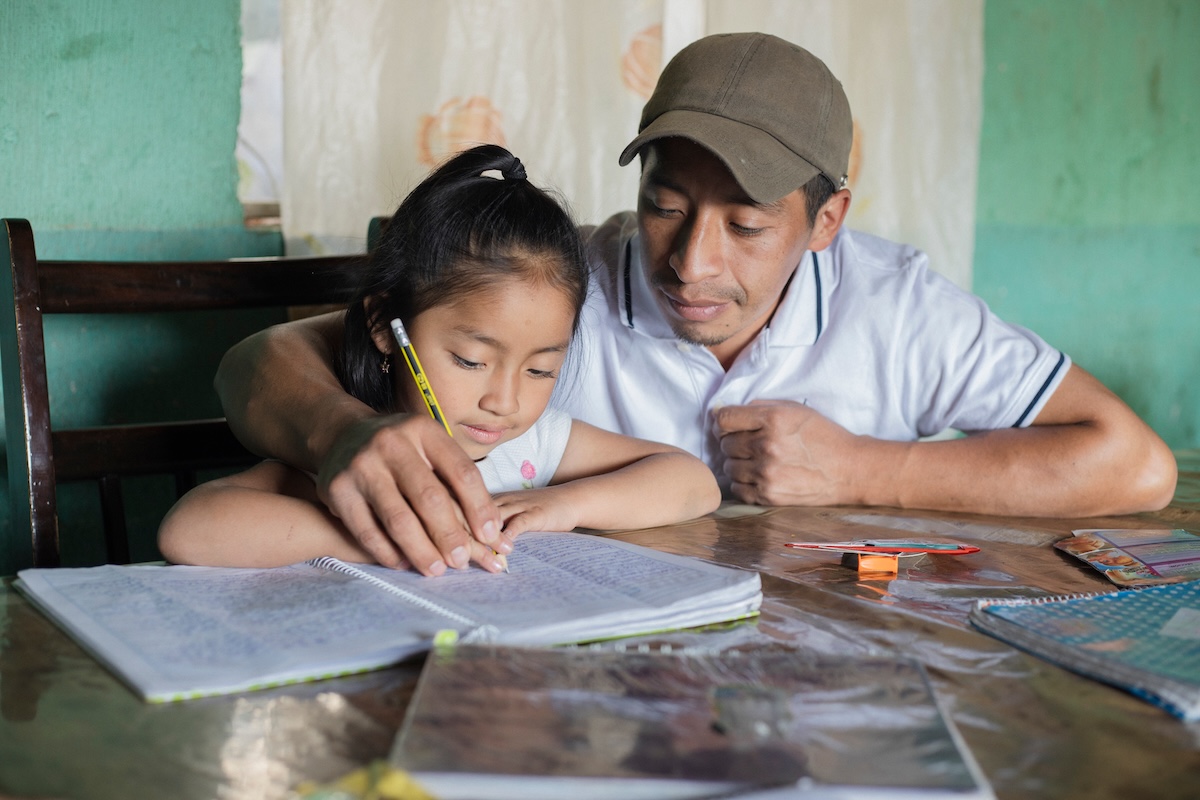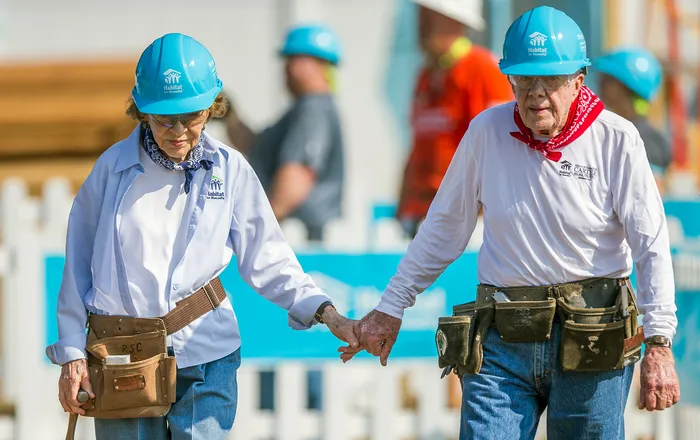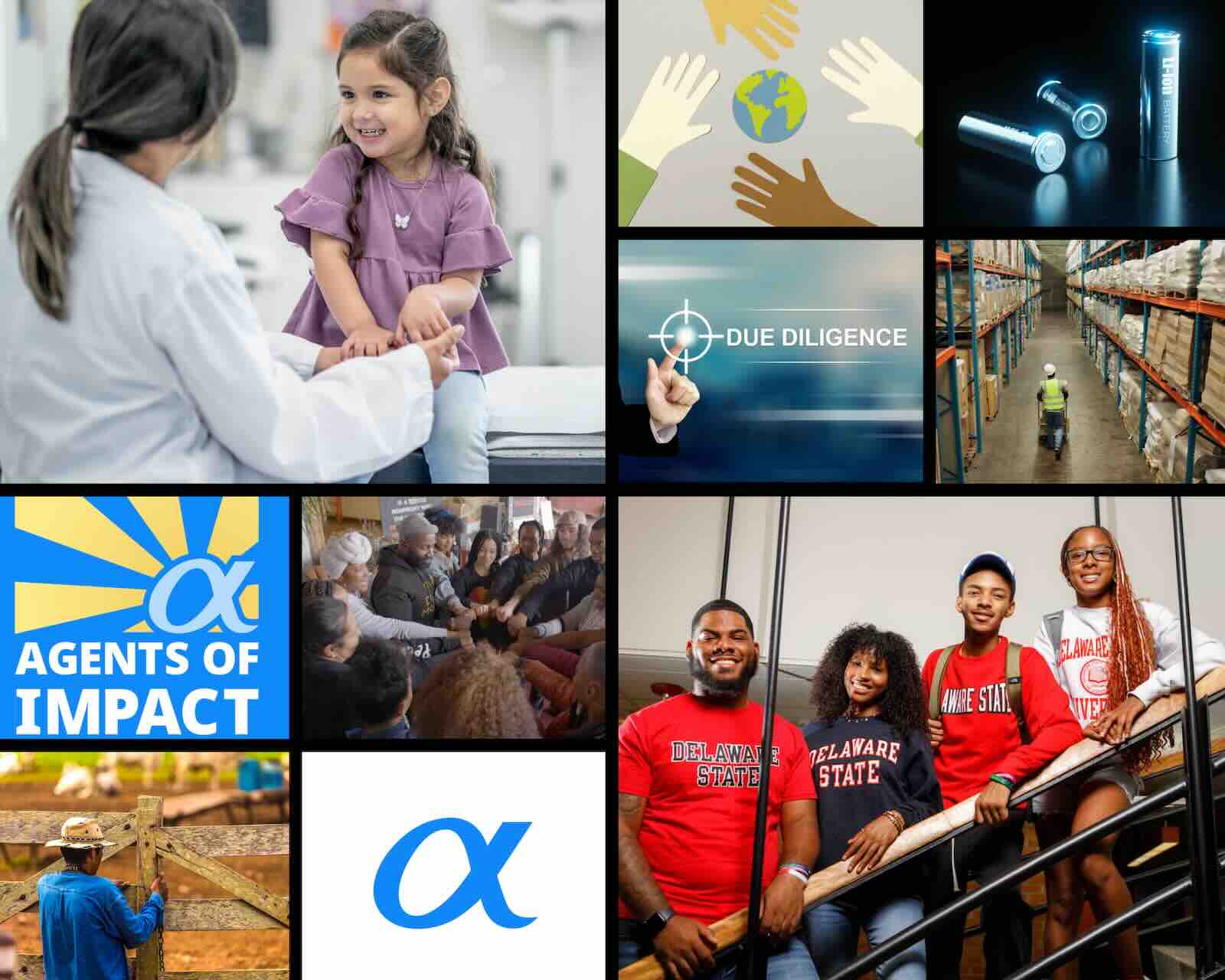ImpactAlpha, Dec. 27 – Raise your voices.
Investors, entrepreneurs, practitioners and thought leaders come to ImpactAlpha to use their Impact Voices to drive forward the conversation about impact investing and sustainable finance.
We’re proud to have curated more than 100 such guest posts from Agents of Impact like LISC’s Annie Donovan and George Ashton, CDC’s Nick O’Donohoe, National Community Reinvestment Coalition’s Dedrick Asante-Muhammad, Encourage Capital’s Adam Wolfensohn, Majority Action’s Eli Kasargod-Staub, Pashko’s Patrick Robinson, Kendeda Fund’s Diane Ives, Appalachian Community Capital’s Donna Gambrell, Pacific Community Ventures’ Bulbul Gupta, Milken Institute’s Alison Harwood and John Schellhase, Opportunity Finance Network’s Lisa Mensah, Common Future’s Rodney Foxworth, Open Road Alliance’s Maya Winkelstein, 60 Decibels’ Lindsay Smalling, ANDE’s Richenda Van Leeuwen, Marguerite Casey Foundation’s Carmen Rojas, TIIP’s William Burckart, IFF’s Joe Neri, Calvert Impact Capital’s Beth Bafford, B Lab’s Andrew Kassoy, NYU’s Tensie Whelan, Obvious Ventures’ Andrew Beebe, Spring Lane Capital’s Rob Day, Courageous Capital’s Laurie Spengler, Transform Finance’s Andrea Armeni and dozens more.
Here are 10 Impact Voices that stood out (share the full post with your friends):
Tynesia Boyea-Robinson on growing black businesses. The Carter Transportation Group landed a large corporate contract with FedEx, but the minority-owned freight delivery service lacked a track record with traditional banking to secure insurance and financing to seize the opportunity. Boyea-Robinson, CEO of CapIQ, shows how flexible financing enabled Carter to take the contract and ramp up its fleet of trucks and drivers. San Diego-based Mission Driven Finance tapped community relationships rather than collateral to extend a loan. “This barrier to capital for Black-owned businesses hurts us all,” Boyea-Robinson writes. “Black business ownership is a proven path to wealth and job creation that concurrently stimulates the U.S. economy.”
- Read, “How usable capital can unleash Black business growth and close racial gaps,” by Tynesia Boyea-Robinson.
Mark Campanale on the fossil fuel non-proliferation treaty. The expansion of coal, oil or gas production is incompatible with the Paris Agreement’s 1.5-degree-Celsius target. Yet countries are on track this decade to more than double fossil fuel production beyond what would be consistent with the 1.5-degree-Celsius limit, warns Campanale, founder of Carbon Tracker. Campanale is championing a Fossil Fuel Non-Proliferation Treaty to end fossil fuel expansion and phase out existing production.
- Read, “International cooperation and open data are key to a just transition away from fossil fuels,” by Mark Campanale.
Michael Etzel and Mariah Collins on ‘impact-first for racial equity.’ The family offices of about 7,000 wealthy families manage nearly $6 trillion in assets worldwide. “Even a fraction of their wealth directed toward equity and justice would have considerable impact,” write Etzel and Collins, partners in the strategic consultancy Bridgespan. The Southern Reconstruction Fund, for example, bolsters wealth creation, social mobility, and health outcomes for those most affected by racial injustice in several Southern cities. How could others start? By “clarifying commitment to equity, seeking advice from stakeholders, and picking from a growing menu of investing options,” the authors advise.
- Read, “Family office opportunities for impact-first investments in racial equity and justice,” by Michael Etzel and Mariah Collins.
Ibrahim Rashid on disability justice. Disability inclusion is emblematic of the struggle for justice. Rashid, a public policy student at the University of Chicago recovered from COVID last November, then in May, suddenly lost the ability to walk. In a guest post, he writes of how he’s “one of the countless newly disabled Americans created by this pandemic” and that most are Black, Indigenous or people of color with limited access to healthcare, sub-living wages and no paid sick-leave. “The impact investing community must organize to build an economy that centers disability justice, and support COVID long-haulers,” he argues.
- Read, “Centering disability justice and including Covid long haulers in the post-pandemic economy,” by Ibrahim Rashid.
Aunnie Patton Power on impact-linked finance. A loan to Jacaranda Maternity Clinic in Kenya from UBS Optimus Foundation links interest rate reductions to level of care and population served. Outcome payments have helped Root Capital make smaller and riskier loans to smallholder farmers in Latin America.“Impact-linked” financial structures like impact tranching, equity earn-backs and recoverable grants can be “powerful tools for aligning impact and financial incentives,” writes Patton Power, an impact investing lecturer and advisor. “Both impact enterprise founders and funders respond to incentives.”
- Read, “Four ways investors are structuring financing to incentivize positive impact,” by Aunnie Patton Power.
Paul Robinson and Katerina Oskarsson on climate adaptation experiments. Long-term climate adaptation requires an escalation of billion-dollar infrastructure projects. Companies like New York-based Smart Walls Construction and Bogotá-based Zilper Trenchless are helping identify which projects warrant the investment with small-scale, localized pilots, write Robinson and Oskarsson, leaders of RISE, a nonprofit economic development organization that is backing such initiatives. “The short-term answer is to think smaller and experiment.”
- Read, “For climate adaptation solutions, think smaller, local and experimental,” by Paul Robinson and Katerina Oskarsson.
Joseph Boateng on the fiduciary duty to Africa. Many U.S. investors hear “Africa” and think “risk.” Boateng, the Ghana-born chief investment officer of Casey Family Programs, sees long-term growth. “U.S. investors who are not looking at investing in Africa are, at best, limiting their opportunity and, at worst, failing to fulfill their duties as fiduciaries,” Boateng argues. Investments in African infrastructure and private equity in particular, Boateng says, have the potential to deliver outsized returns. A way to mitigate Africa’s perceived risks: seeking help from unconventional partners.
- Read, “Consider yourself a fiduciary? Then it’s time to invest in Africa,” by Joseph Boateng.
Karim Hutson on community (re)investment. The Community Reinvestment Act, passed in 1977 compels banks to operate and lend in lower-income neighborhoods. But it has one glaring hole: racial equity. “The CRA never went far enough to specifically ensure Black and Brown Americans weren’t shut out from the promise of real estate equity, whether as owners or as entrepreneurs,” writes Hutson, founder of Genesis Companies, a Black-owned real estate development firm in New York. Hutson argues for mandates that would diversify the pool of real estate developers responsible for public affordable housing resources and other “common-sense reforms that will finally offer all of us a fair shake at the American Dream.”
- Read, “Racial equity planks in a new Community Reinvestment Act can expand the American Dream,” by Karim Hutson.
John MacIntosh on pooling catalytic capital. Program-related investments, or PRIs, should be attractive to foundations, but the 52-year-old investment tool is woefully underutilized. The New York Pooled PRI Fund is trying to change through a fund structure that lowers transaction costs for foundations by collectivizing sourcing, due diligence and fund management, while supporting nonprofits like Brooklyn Community Bail Fund and the NYC COVID-19 Response and Impact Fund that serve low-income neighborhoods. MacIntosh, managing partner of SeaChange Capital Partners, which manages the fund, says the goal is “trying to understand and reduce the real-world barriers that can prevent funders with a genuine interest in impact investing from acting on it.”
- Read, “How one New York fund is getting impact-first capital off the sidelines,” by Josh MacIntosh.
Cathy Clark on impact goal ABCs. The “ABC” classification system from the Impact Management Project helps investors differentiate investment goals: A – investments that avoid harm, B – those that benefit stakeholders, and C – investments that contribute to solutions. The classification makes it easier for investors to decide what impact data to request from investees and to understand if an investment is meeting its targets, writes Clark, faculty director at Duke’s Center for the Advancement of Social Entrepreneurship. “As more investors use the goal levels, impact performance will be easier to communicate up and down the investment value chain.”
Read, “Optimizing for Impact: Assign an ABC goal type to each investment,” by Cathy Clark, part of ImpactAlpha’s Optimizing for Impact series.












